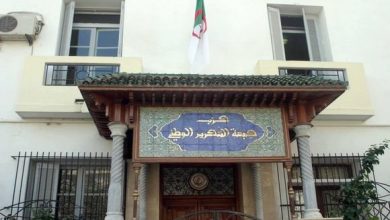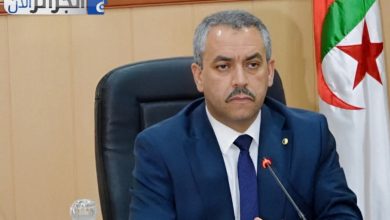Paris – Sid Ahmed Ahmed, head of the Sahrawi community in France, vehemently condemned the repeated attacks and systematic provocations targeting the “Freedom March,” which demands the release of Sahrawi political prisoners. The march, which began on March 30 from Évry-sur-Seine, France, heading toward Kenitra prison in Morocco, has faced disruptions orchestrated by elements of the Moroccan community at the behest of the Makhzen, in a failed attempt to silence the voice of justice and break the resolve of the activists.
Speaking at a welcoming ceremony held in Bordeaux on Sunday to receive the march, led by activist Claude Mangin—wife of Sahrawi political prisoner Naama Asfari from the Gdeim Izik group—Sid Ahmed Ahmed stated that these attacks “represent a desperate attempt to silence the voice of truth and Sahrawi resilience, reinforcing a policy of repression and intimidation aimed at suppressing the legitimate demands of the Sahrawi people.” He added that such actions “reflect a moral bankruptcy of those elements” and are “a futile effort to undermine a peaceful march seeking just demands and striving to amplify the voices calling for the freedom of Sahrawi political prisoners.”
Conversely, Sid Ahmed Ahmed highlighted the strong support the march enjoys from the Sahrawi diaspora, as well as growing endorsements from French political, trade union, and human rights entities, noting that this backing proves the march is “a cry against injustice” and that the Sahrawi people “remain steadfast in their legitimate rights, undeterred by attempts at repression and intimidation in their peaceful struggle for self-determination, freedom, and justice.”
Bordeaux’s Place de la Victoire witnessed a vibrant ceremony on Sunday to welcome the Freedom March. Sahrawi media reported that the event “carried a folkloric character, reflecting the Sahrawi identity and culture, expressing the diaspora’s attachment to its authentic heritage, distinct from that of the colonizer.” A tent was set up displaying tools and items used in traditional Sahrawi life, and photos of all Sahrawi political prisoners, led by those from Gdeim Izik, were displayed.
The march has garnered widespread support from French political, human rights, and trade union elites, as well as French civil society actors, alongside the Sahrawi community in France. However, elements of the Moroccan community have intercepted the march at several stops, attempting to halt it and silence its call for freedom for all Sahrawi political prisoners in Moroccan jails, as well as to prevent it from raising awareness of the Sahrawi cause among French circles and elites.
On the sidelines of the march’s activities, Maryam Naïli, an expert in international law and human rights and professor at the University of Grenoble, outlined the legal context of the Sahrawi cause based on international legitimacy, principles of international law, and UN resolutions. She affirmed that Morocco’s presence in Western Sahara constitutes “a blatant violation of these principles and international standards that guarantee the Sahrawi people’s right to self-determination.” Naïli called on the international community to uphold its legal and moral responsibilities to press for an end to the suffering of Sahrawi political prisoners and to achieve justice.
Having covered 600 of its 3,000-kilometer journey, the march is expected to arrive in Toulouse on Monday, marking its seventh stop.




